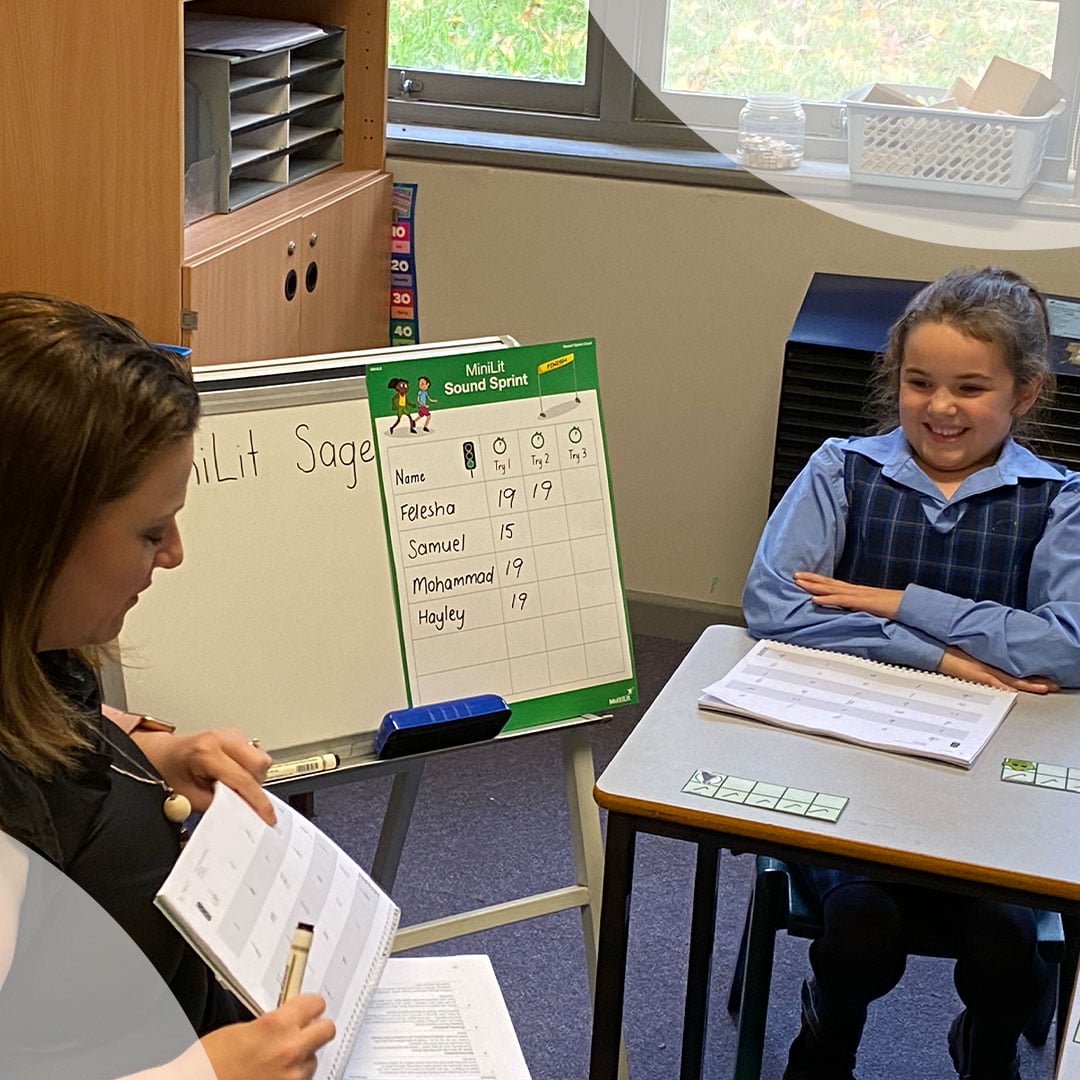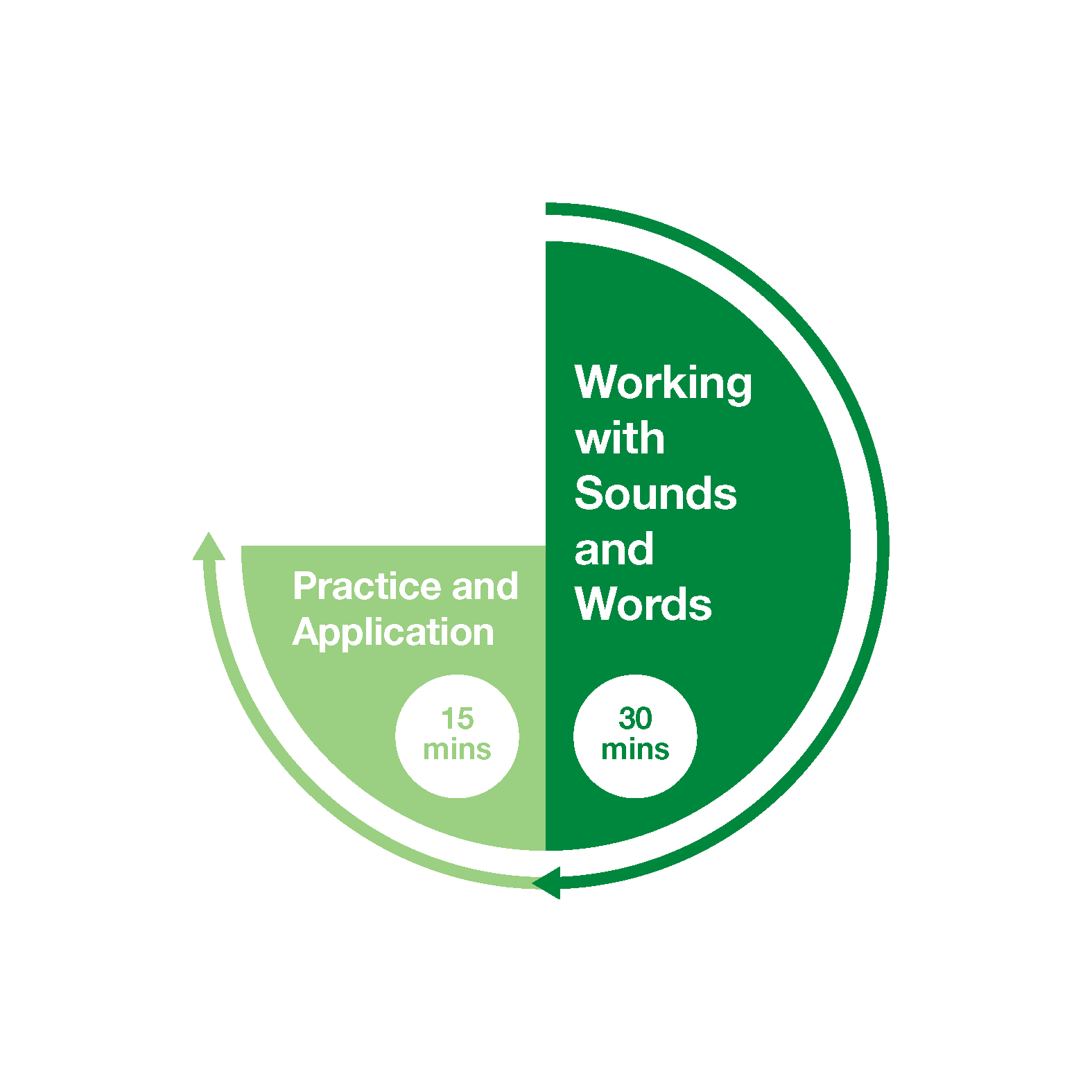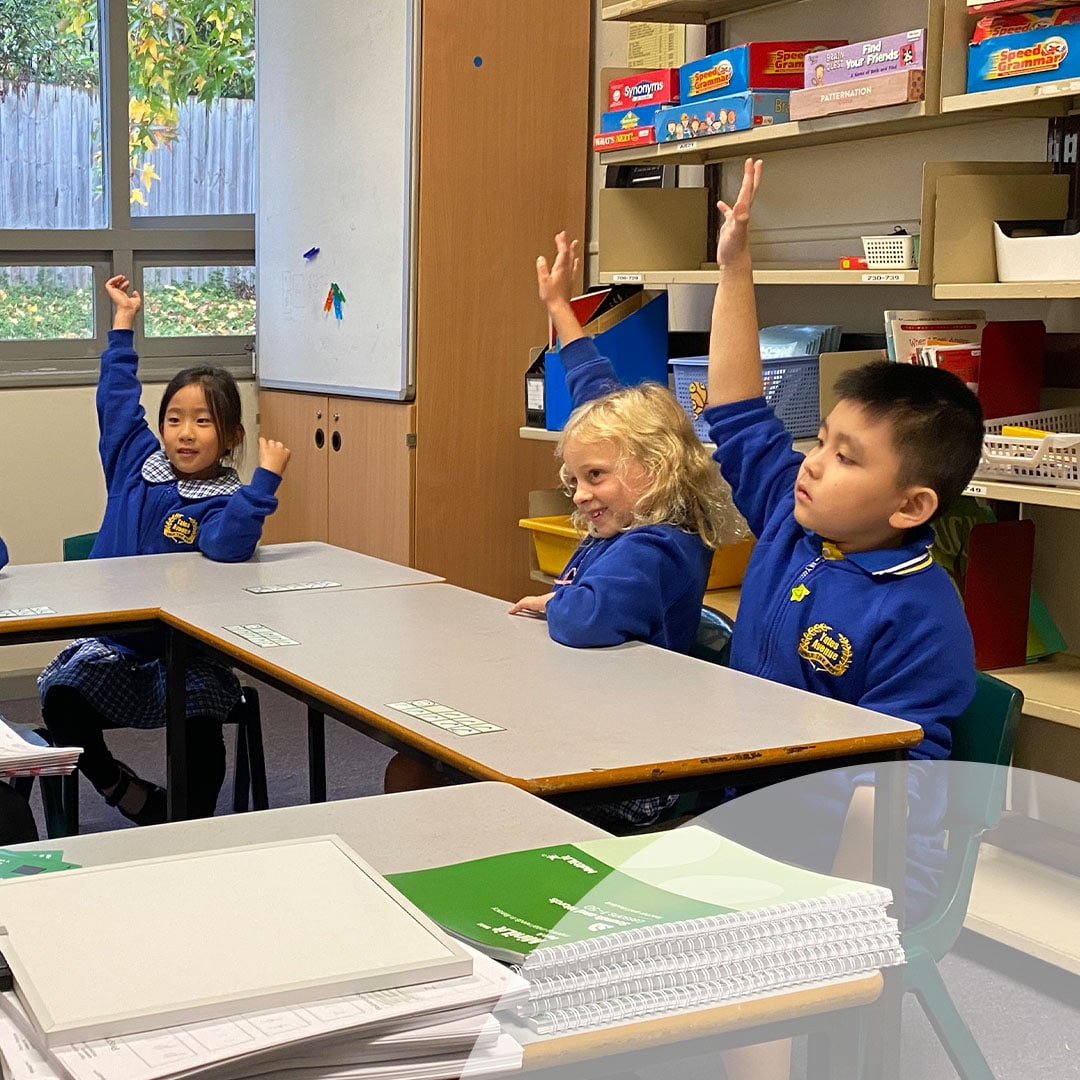In 2011, MultiLit launched MiniLit, our effective, evidence-based, small group intervention program, designed to support struggling readers in the initial stages of literacy up to Year 2. A decade on, it’s time to release the first major revision of the program, MiniLit Sage informed by the latest evidence on the science of reading. The changes also bring MiniLit Sage’s scope and sequence into alignment with InitiaLit, our whole-class literacy program, providing an integrated approach to early literacy to give students who might otherwise fall behind their peers a boost. Find out how MiniLit Sage can positively impact your school by providing early intervention to reduce the number of students requiring support in higher grades.

Shorter lessons
Lessons in MiniLit Sage can be delivered to groups of up to four students who are at the same instructional level. While the recommendation to provide 4-5 MiniLit lessons per week remains unchanged, the original program offered 80 lessons of one hour each. MiniLit Sage offers 100 lessons of 45 minutes each. These shorter lessons should prove more manageable for schools to timetable.
More focused lesson structure
MiniLit Sage allows for more time to be spent on text reading using decodable readers and the updated and refreshed Sounds and Words Book. There is also an expanded focus on reading fluency at both the word and text level through targeted daily practice opportunities. Each lesson is structured as follows.
Working with Sounds and Words (30 minutes)
- Phonemic awareness
- Phonics
Practice and Application (15 minutes)
- Reading Sounds and Words
- Putting It All Together
- Fluency Practice
- Text Reading (Accuracy and Fluency using decodable texts)

MiniLit Sage lessons have been carefully written to ensure that the reciprocal relationship between reading and spelling is transparent. The updated Student Workbook ensures children have many opportunities to apply their knowledge of the alphabetic code to spelling in a supportive environment.
Those familiar with the original MiniLit program will see that the time that was spent on the Storybook Reading component has been replaced with more time for children to practise their reading using decodable readers. This is to prioritise exposure to as much print as possible as children learn how to decode. However, for those children who do need intervention in oral language, MultiLit is developing a new intensive program, Language Lift, for release in 2022 – watch this space!
We recommend the use of InitiaLit Readers during the Practice and Application component of MiniLi Sage. These are aligned to the MiniLit Sage scope and sequence. The new Wattle Series of InitiaLit Readers, to be released in September 2021, is especially suitable for Part B of MiniLit Sage.
Response to intervention: aligning tier 1 and tier 2 Response to Intervention literacy programs
MiniLit Sage is aligned to the phonic scope and sequence for InitiaLit, MultiLit’s whole-class reading and spelling program for the first three years of school. MiniLit Sage now helps to ensure that all children can master both the basic and much of the extended code taught in InitiaLit–F and InitiaLit–1.
Letter-sound correspondences and irregular high frequency words, otherwise known as tricky words, taught in MiniLit Sage now align more closely with InitiaLit. As in MiniLit, MiniLit Sage introduces irregular high-frequency words more formally as soon as the children’s understanding between a letter and its sound is firm. MiniLit Sage does, however, provide more detailed tricky word instruction, focusing children’s attention on the regular and irregular parts of the word for reading and spelling.
MiniLit Sage can be successfully implemented alongside any classroom literacy program. However, it is a natural fit for those schools who are implementing InitiaLit, ensuring a seamless connection between classroom instruction and intervention.
For a more detailed outline of the differences between MiniLit and MiniLit Sage, click here.

Training options
There are two training options for MiniLit Sage:
1. Two-day professional development workshop in MiniLit Sage in-person or via videoconferencing. For schools new to MiniLit Sage.
2. Bridging training in MiniLit Sage via self-paced eLearning modules hosted on OpenLearning. For individuals who have previously completed MiniLit professional development.
Discover MiniLit Sage for your school now: find out more here for more information.